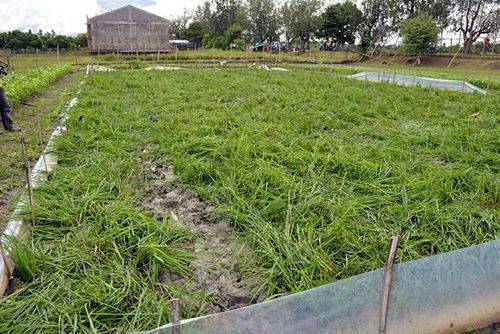---
Amartey Kope Rice Farmers Demand Open, Non-Political Distribution of Government Relief
Rice farmers in Amartey Kope, a booming farming community, are calling on the government to provide any existing support programs for farmers in a transparent and non-political manner. The call follows rising concerns that state support geared towards building farming resilience is not fairly reaching all farmers on equal grounds because of politicization.
The latest government interventions aimed at farmers who have been devastated by droughts and floods were greeted with optimism across the country. Some of these initiatives include the distribution of food items such as rice and maize, as well as farming inputs such as fertilizers and high-yielding seeds. The aim of these initiatives is to boost productivity, enhance food security, and cushion farmers against economic hardship.
However, in the view of some farmers in Amartey Kope, access to these benefits appears skewed and too closely linked to political affiliations. Farmers grumble that those perceived to be politically well-connected are prioritized, whereas others, regardless of need or contribution to agriculture, are sidelined. This has generated bitterness among many farmers who believe that government support ought to be a right for all those working towards national food production, not a prerogative of the privileged few.
The issues of the rice farmers are numerous and well-documented. Limited access to quality seeds and fertilizers, poor access to reliable irrigation facilities, and limited availability of modern farm machinery continue to constrain productivity. Without adequate storage facilities, a tremendous amount of harvested rice is lost after harvesting, translating into reduced income and food loss. Besides, farmers tend to lack access to affordable credit to invest in better agricultural technologies, primarily due to the strict conditions laid down by financial institutions.
Government support then works as a lifeline in such a setting. Therefore, any impression of lopsided distribution not only dissipates trust in government programs but also sabotages the very aim of enhancing agricultural resilience.
Amartey Kope farmers are demanding that clear, explicit guidelines for the distribution of government aid be put in place. They suggest that assistance be provided based on objective needs assessment and not on the basis of political affiliation. They also say that local farmers' organizations need to play an active role in monitoring and verifying the distribution process. These associations, rooted in the farming communities themselves, are better placed to identify genuine farmers and ensure that support reaches those who truly need it.
Other than ensuring fairness in distribution, farmers also call for more investment in infrastructure. They call on the government to build irrigation facilities, enhance rural roads to make markets more accessible, and expand storage facilities to avert post-harvest losses. Equally important is the call for government-sponsored programs that grant access to low-interest loans and insurance programs, which allow farmers to adopt new technologies and practices that can stimulate productivity and sustainability.
Amartey Kope's case is a reminder of the broader national challenge: building an equitable, efficient, and resilient agricultural sector. This cannot be achieved through piecemeal interventions but requires a systemic commitment to equity, transparency, and inclusiveness in all aspects of agricultural program and policy implementation.
By acting on the concerns of farmers, the government can rebuild trust and transform the agricultural sector into a firm pillar of economic progress. Transparent distribution of support, free from political considerations, can enhance farmers' confidence and motivate them to work harder to produce food, which will ultimately ensure national food security.
With Ghana facing the twin pressures of climate change and economic uncertainty, it is imperative that fairly and regularly supporting farmers has to be an urgent priority. An open and inclusive approach to agricultural development is not only of paramount importance to farmers of Amartey Kope but instrumental to the future of farming across the nation.




No comments yet
Be the first to share your thoughts!